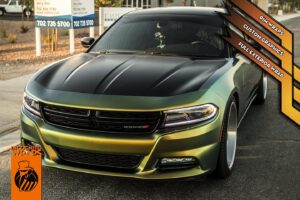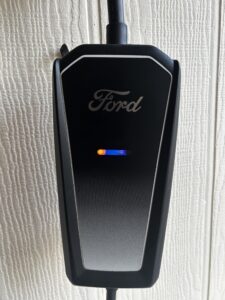Wondering if your Tesla charger can be used to power up other electric vehicles? The answer is yes, but there’s a catch! While Tesla chargers are compatible with other cars, they require an adapter to connect properly. So, if you’re considering using a Tesla charger for your non-Tesla electric vehicle, read on. In this article, we will delve into whether the Tesla charger works on other cars, explore the necessary adapters, and discuss the advantages and potential limitations of using a Tesla charger. So, let’s get started and find out if the Tesla charger can power up your electric car!
Does Tesla Charger Work on Other Cars?
Introduction
Tesla, the renowned electric vehicle (EV) manufacturer, has revolutionized the automotive industry with its cutting-edge technology and commitment to sustainability. One commonly asked question by EV enthusiasts is whether Tesla chargers are compatible with other electric vehicles. In this article, we will delve into the topic of whether Tesla chargers can be used to charge non-Tesla EVs. We’ll explore the different charging standards, adapters, and compatibility issues. So, let’s dive in and find out if you can charge your non-Tesla EV at a Tesla charger.
The Tesla Supercharger Network
One of Tesla’s significant advantages is its extensive network of Supercharger stations strategically placed across the globe. These fast-charging stations provide Tesla owners with convenient access to high-speed charging, reducing charging times significantly. However, the Supercharger network is exclusively designed for Tesla vehicles and does not offer compatibility with other electric car brands. This limitation is primarily due to differences in charging standards and communication protocols.
Charging Standards: CCS, CHAdeMO, and Tesla
To understand the compatibility issues, it’s crucial to grasp the various charging standards employed by electric vehicles. Currently, there are three prevalent charging standards: Combined Charging System (CCS), CHAdeMO, and Tesla’s proprietary connector.
- CCS: The Combined Charging System is widely adopted by European and American automakers. It combines AC and DC charging into a single connector, allowing for both slower AC charging and faster DC charging.
- CHAdeMO: CHAdeMO is a fast-charging standard primarily developed by Japanese automakers. It supports both AC and DC charging but requires a separate connector.
- Tesla: Tesla has its own proprietary connector and charging standard. The Tesla connector is distinctively shaped and is used exclusively for Tesla vehicles.
Physical Differences and Adapter Solutions
Due to the physical design differences between the Tesla connector and other charging standards, it is not possible to directly connect a non-Tesla EV to a Tesla charger. However, several adapter solutions are available in the market to bridge the compatibility gap. Let’s explore these adapter options:
Tesla to CCS Adapter
One potential solution for using a Tesla charger with a non-Tesla EV is a Tesla to CCS adapter. This adapter allows you to connect a CCS-compatible electric vehicle to a Tesla charger. By converting the Tesla connector to the CCS format, it enables the transfer of power and communication between the charger and the vehicle. However, it is crucial to ensure compatibility with the specific EV model and charger type.
Tesla to CHAdeMO Adapter
Similar to the Tesla to CCS adapter, the Tesla to CHAdeMO adapter enables non-Tesla EV owners to utilize Tesla chargers equipped with a CHAdeMO connector. By converting the Tesla connector to the CHAdeMO standard, this adapter facilitates charging at CHAdeMO-compatible charging stations. Again, it is vital to verify compatibility with the specific EV model and charger type.
Third-Party Options
In addition to official Tesla adapters, some third-party companies offer alternative solutions to connect non-Tesla EVs to Tesla chargers. These aftermarket adapters may come with varying compatibility and reliability, so it is essential to research and choose reputable options.
Compatibility Considerations
While adapters can bridge the gap between charging standards, it is crucial to consider compatibility limitations specific to your EV model and charger type. Here are some factors to keep in mind:
Power Output
Different Tesla chargers have varying power outputs, ranging from 72 kW to 250 kW. It is important to ensure that the chosen adapter and your EV’s charging capabilities align with the charger’s power output. Otherwise, charging may be slower or restricted.
Software and Communication
Tesla chargers rely on proprietary software and communication protocols designed to work seamlessly with Tesla vehicles. When using adapters, there may be limitations in software compatibility and communication between the charger and your non-Tesla EV. This can result in reduced charging speeds or potential incompatibility issues.
Warranty and Support
Using an adapter to charge a non-Tesla EV at a Tesla charger may void your vehicle’s warranty or negatively impact customer support. It is essential to review the manufacturer’s guidelines and consult with your vehicle’s manufacturer before utilizing adapters.
Alternative Charging Options
While using Tesla chargers may not be a straightforward option for non-Tesla EVs, there are various alternative charging options available. These include:
- Public Charging Networks: Utilize public charging networks such as ChargePoint, EVgo, and Electrify America. These networks offer a range of charging standards and connector types that cater to different electric vehicle models.
- Home Charging Solutions: Install a Level 2 home charging station that is compatible with your EV model. This provides the convenience of charging your vehicle overnight, ensuring it is ready for use the next day.
- Destination Charging: Some destinations, such as hotels, shopping centers, and parking facilities, provide dedicated EV charging stations. These are often compatible with various electric vehicle models.
While Tesla chargers are not designed to be directly compatible with non-Tesla electric vehicles, the use of adapters can bridge the gap to some extent. Tesla to CCS or CHAdeMO adapters offer potential solutions for non-Tesla EV owners to access Tesla chargers. However, it is essential to consider factors like power output, software compatibility, and warranty implications before utilizing adapters. In cases where adapters may not be feasible, alternative charging options like public charging networks, home charging solutions, and destination charging stations provide convenient alternatives for non-Tesla EV owners. It is crucial to thoroughly research and choose charging solutions that best align with your specific electric vehicle model and needs.
How to use a Tesla Supercharger… without a Tesla!
Frequently Asked Questions
Can a Tesla charger be used to charge other electric cars?
Yes, Tesla chargers are compatible with other electric cars, but certain considerations should be kept in mind.
Is a Tesla charger compatible with different charging standards?
Yes, Tesla chargers are built to support various charging standards, such as CHAdeMO and CCS, through the use of adapters.
Does using a Tesla charger on another car affect the charging speed?
When using a Tesla charger on a non-Tesla electric car, the charging speed may differ due to the limitations of the car’s onboard charging system. It is advisable to consult the car’s manufacturer or refer to the user manual for specific charging speeds.
Can a Tesla charger charge other electric cars as efficiently as a dedicated charger?
While a Tesla charger can charge other electric cars, it may not provide the same efficiency as a dedicated charger designed for that particular car model. It’s recommended to use the manufacturer-recommended charger for optimal charging performance.
Can any Tesla charger be used to charge other electric cars?
Most Tesla chargers, including the Supercharger network, can be used to charge other electric cars with the appropriate adapter. However, compatibility may vary, so it’s essential to check the charger’s specifications and ensure it supports the required charging standard.
Are there any compatibility issues when using a Tesla charger on other electric cars?
While Tesla chargers are generally compatible with other electric cars, there may be some compatibility issues, especially with older models. It’s recommended to verify compatibility with the specific electric car and refer to the respective manufacturer’s guidelines.
Final Thoughts
In conclusion, it is important to acknowledge that Tesla chargers are specifically designed for Tesla vehicles and may not work directly with other electric car models. The Tesla charger utilizes a proprietary connector and charging system, making it incompatible with most non-Tesla electric vehicles. However, there are adapters available in the market that can allow you to use a Tesla charger with other EVs, but they may not provide the same level of efficiency or charging capabilities. Therefore, if you own a non-Tesla electric car, it is advisable to use chargers specifically designed for your vehicle to ensure optimal charging performance and safety.



